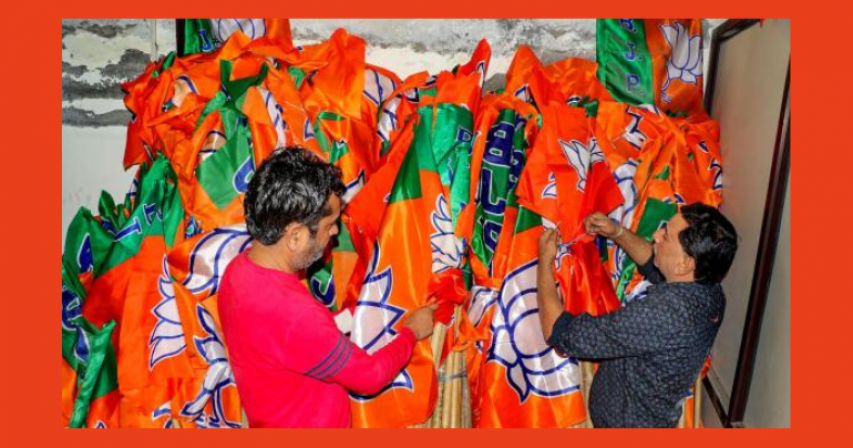India's electoral bonds: Top donors to BJP include Vedanta, Reliance-affiliate

The recent disclosure of top donors to India's ruling Bharatiya Janata Party (BJP) and the main opposition Congress party has shed light on the opaque funding mechanisms that have long fueled suspicion in the country's political landscape. The data, made public by the Election Commission of India under Supreme Court orders, reveals the significant role played by corporate entities in financing political parties through the now-scrapped electoral bonds scheme.
Among the notable contributors to the BJP are Megha Engineering, Reliance affiliate Qwik Supply Chain, MKJ Enterprises, and Vedanta. Similarly, top donors to the Congress party include Megha Engineering, Vedanta, and MKJ Enterprises. This disclosure marks the first instance where the names of corporate donors and their beneficiaries under the controversial funding scheme have been revealed, coinciding with the upcoming national elections set to commence on April 19.
The electoral bonds system, which allowed for unlimited and anonymous donations to political parties, heavily favored the BJP, with the party receiving nearly half of the total bonds sold, amounting to 165 billion rupees ($1.98 billion) between January 2018 and February 2024. However, the Supreme Court deemed the electoral bonds system unconstitutional and scrapped it last month, citing concerns about transparency and the potential for quid pro quo arrangements.
Despite the controversy surrounding electoral financing, Prime Minister Narendra Modi's BJP is expected to secure a rare straight third term in the upcoming elections. The data released by the Election Commission indicates substantial contributions from corporate entities to both major political parties, with significant sums allocated to fund their electoral campaigns.
Key donors to the BJP include Megha Engineering and Infrastructure Limited, Western UP Transmission Company (a subsidiary of Megha Engineering), Qwik Supply Chain (a Reliance affiliate), Madanlal Group (including MKJ Enterprises and Keventer), Vedanta, and Airtel. For the Congress party, major donors include companies affiliated with the Madanlal Group, Megha Engineering, and Vedanta.
One particularly surprising donor mentioned in the data is Santiago Martin, a controversial figure known as the "lottery king" who has faced accusations of fraud and money laundering by Indian authorities. Despite these allegations, Martin's company, Future Gaming and Hotel Services, made significant donations to regional parties such as Trinamool Congress and Dravida Munnetra Kazhagam, as well as contributions to the BJP and Congress.
In addition to electoral bonds, political parties in India also raise funds through direct donations from individuals, companies, and entities known as electoral trusts. These trusts, which largely favor the BJP, contribute substantially to the party's financial reserves. As of March 2023, the BJP's war chest stood at 70.4 billion rupees, significantly surpassing the Congress party's funds.
The disclosure of top donors and their contributions highlights the complexities and controversies surrounding political financing in India. While the scrapping of the electoral bonds system represents a step towards greater transparency, questions remain about the influence of corporate interests in shaping the country's political landscape.
By: Sahiba Suri





Comments